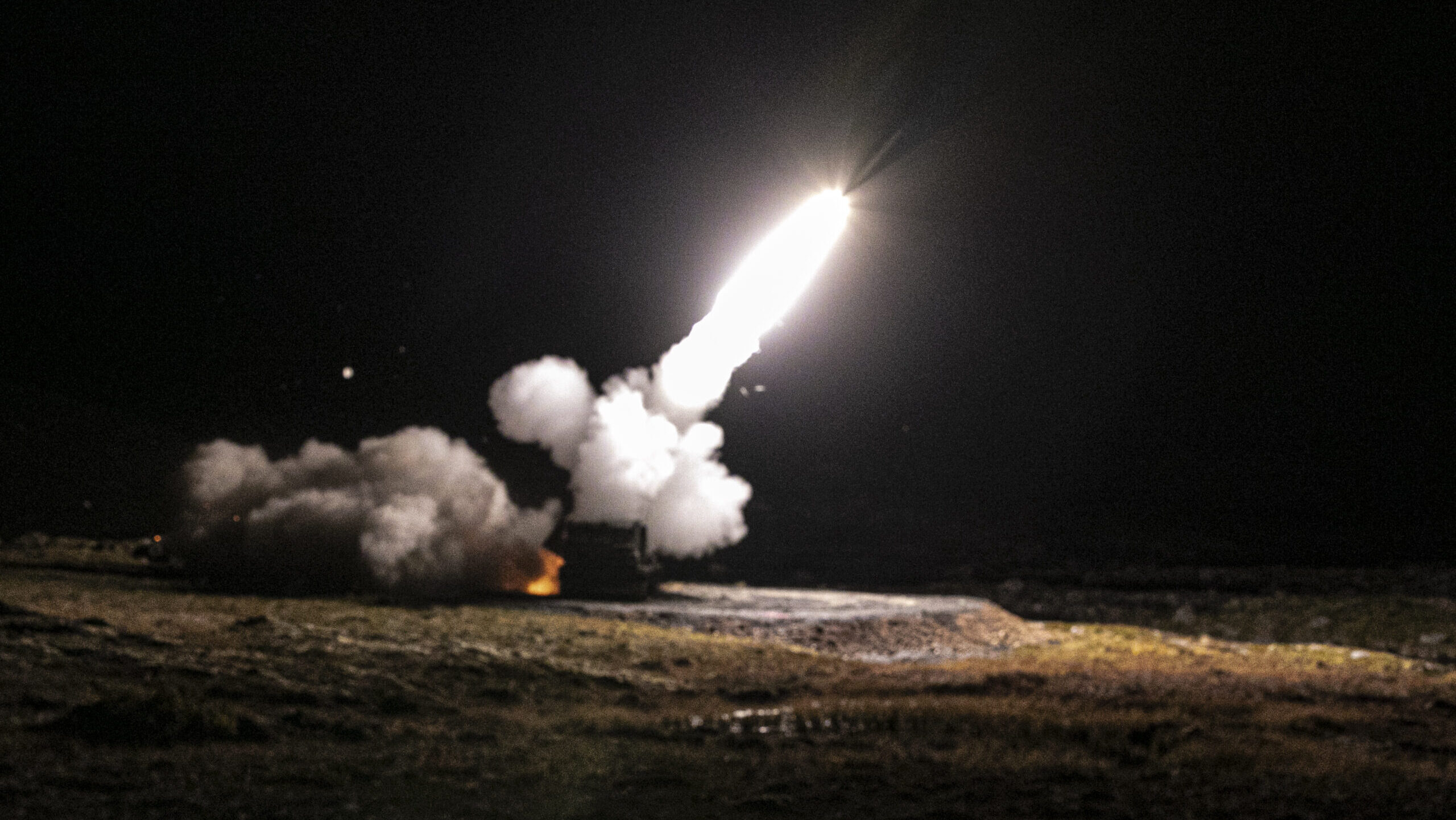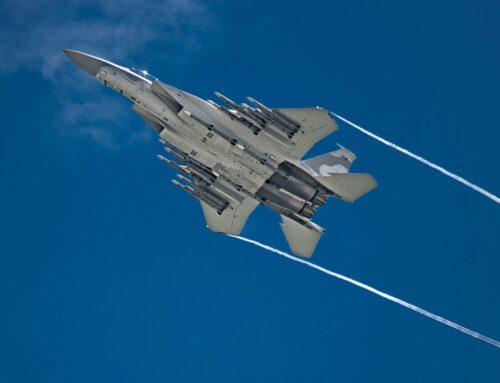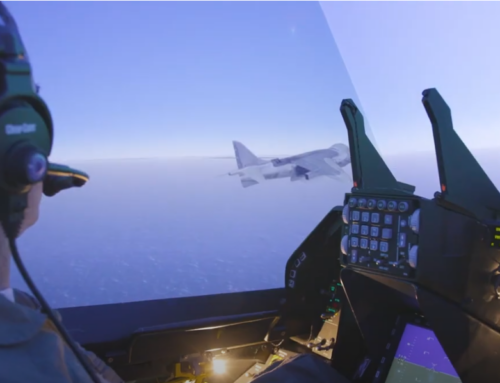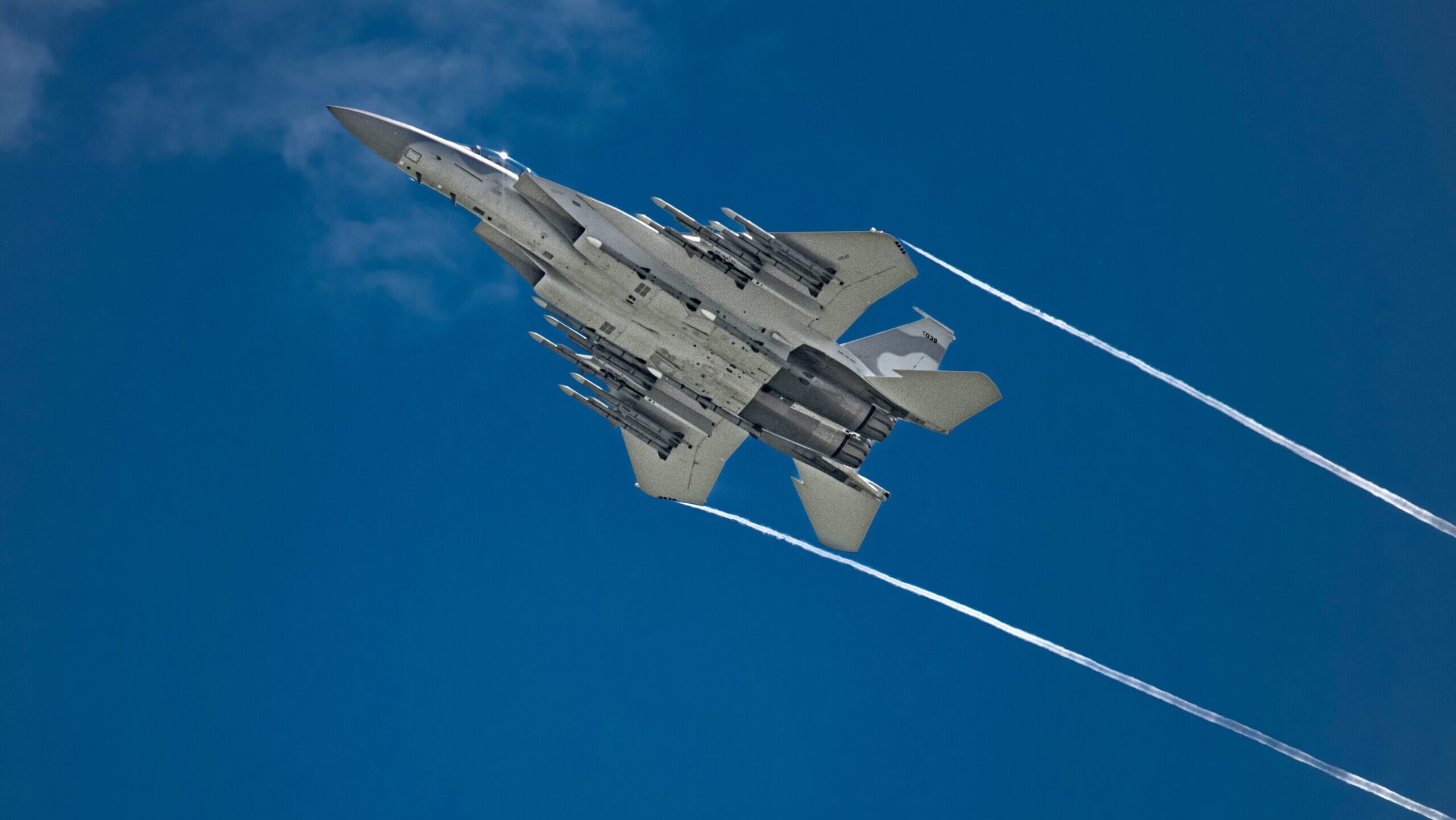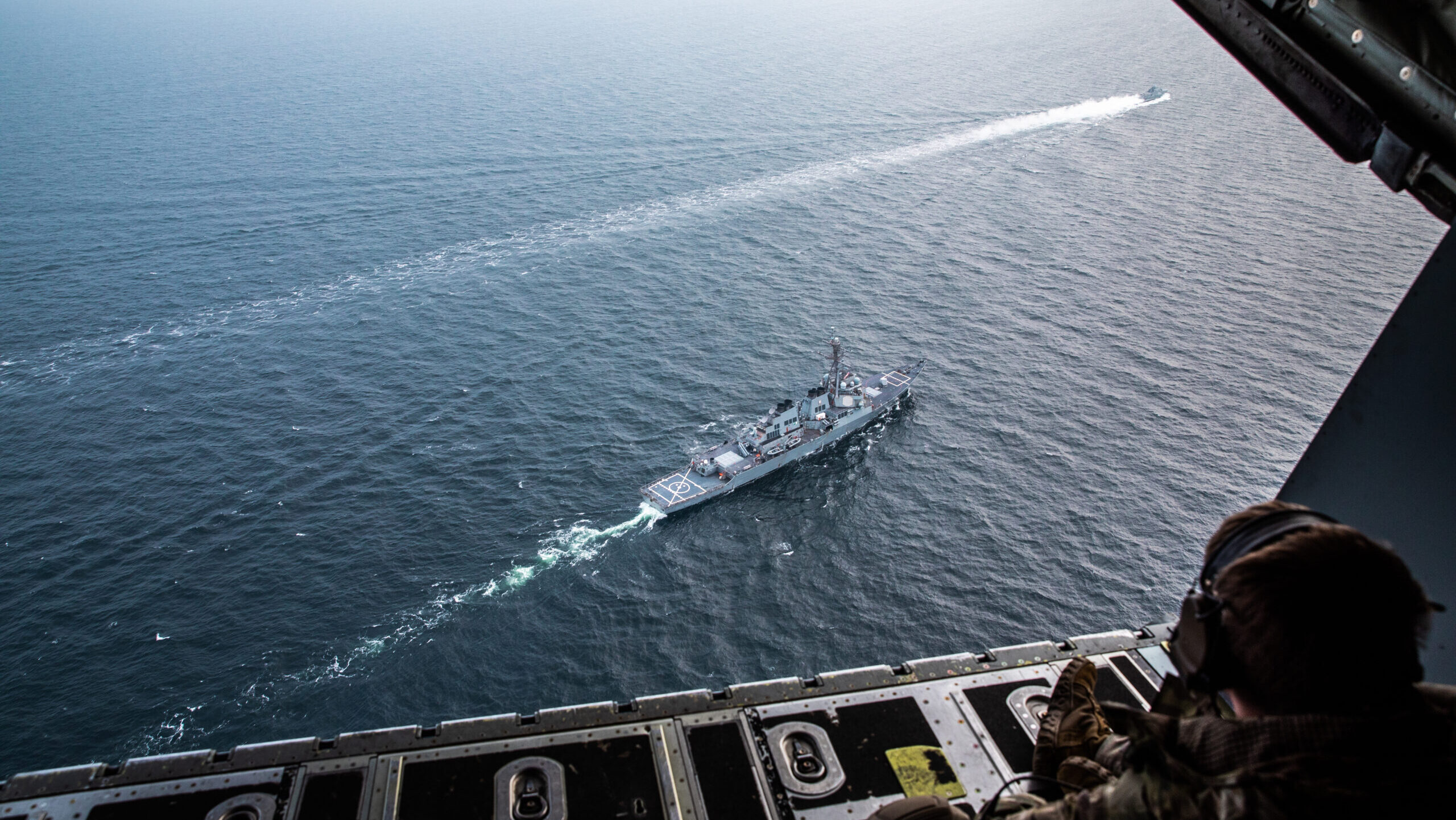Soldiers assigned to 1st Battalion, 6th Field Artillery Regiment, 41st Field Artillery Brigade fire M31 Guided Multiple Launch Rocket Systems from their M270A1 MLRS during the Thunder Cloud live-fire exercise in Andoya, Norway on the night of Sept. 15, 2021. Thunder Cloud was designed to test out the targeting capability of the High Altitude Balloon system coordinated through the 2nd Multi-domain Task Force-Europe using long-range precision fires on a seaborne target 20 Kilometers off the coast on Andoya, above the Arctic Circle. (Official U.S. Army photo by Maj. Joe Bush)
LANDFORCES 2024 — Australia is set to boost its capability for domestic manufacturing of precision guided munitions (PGM), by incorporating locally-made rocket motors and warheads into US guided multiple launch rocket system (GMLRS) missiles.
Under an agreement announced at the Land Forces Expo in Melbourne on Wednesday, defense company Thales Australia, a subsidiary of the French parent, will manufacture rocket motors and warheads for Lockheed Martin’s GMLRS missiles.
Earlier this year, Lockheed and the Australian defence department announced that GMLRS missiles would be assembled in Australia from solely US-sourced components. While derided by some as the equivalent of assembling flatpack furniture, that was a significant step in Australia’s journey towards a domestic PGM production line.
Lockheed is standing up assembly of GMLRS at a defense facility at Orchard Hills, NSW, from US-made components, with the first wholly Australian-assembled round to be produced next year.
Australian-made warheads and rocket motors from the Thales plants in Benalla, Victoria and Mulwala, NSW, are likely to be the first significant locally produced components for GMLRS.
Ken Kota, Lockheed’s vice-president for international integration, said Lockheed was committed to finding Australian partners for missile production.
“The global supply of solid rocket motors is under stress. We need partners globally in order to be successful,” he said. “We have very good plans in place. We have done a lot of engineering already. Our team in the US is designing and collaborating with the team here very regularly.”
Thales chief executive officer Jeff Connolly said the deal was more than two years in the making.
“We started the discussion about, what would it take to make a rocket motor and warhead for GMLRS as a start point,” he said, stressing that this new agreement wasn’t just for Aussie needs but for global requirements.
“People would like to tell you that Australia can’t do – well it’s already there,” Connolly said.
“It’s enabled by AUKUS and propelled by AUKUS. The amount of cooperation between the states and Australia now because of AUKUS means we can really get going on certifications together, accelerate that through so that these weapons are the same as what would be produced by Lockheed and its partners in the US.”
Connolly said Australian components would progressively be introduced to the GMLRS production line. All initial production rounds will feature only US-made components, including rocket motors and warheads, just assembled locally. Only once the Australian-made energetics are fully developed and certified will they be included in the new rounds, something the companies are hoping to see done before the end of the decade.
Thales has already produced BLU series bombs which flew on US Marine Corps aircraft earlier this year, which helps with the development of the rocket motors.
“That’s the same chemistry involved in those type of aircraft bombs as in rocket motors, a cast compositive material with polymer chemistry,” said Duncan Watt, manager for the Guided Weapons and Explosive Ordnance (GWEO) enterprise for Thales.
The strategic benefit of having domestic production capabilities on PGMs is obvious when looking at a map. Should Australia find itself in a conflict, relying on production lines in the US or Europe could prove disastrous. In addition, Australian industry stands to benefit if it can become the Pacific hub for supplying regional partners and allies with weaponry.
Australia has previously announced plans for local production of Kongsberg Naval Strike Missile and Joint Strike Missile.
Air Marshal Leon Phillips, head of the Australian defence department’s Guided Weapons and Explosive Ordnance Enterprise, said Australia wanted to do much more than assemble PGM from foreign supplied components.
“If all we did when we are sitting here in five years is bolting components together off extant foreign production lines, I will have failed in our ability to uplift our sovereignty,” he said. “If all I am doing is taking rocket motors out of the US and trying to assemble more rocket motors, I will be hitting the same constraint supply point that already exists.


